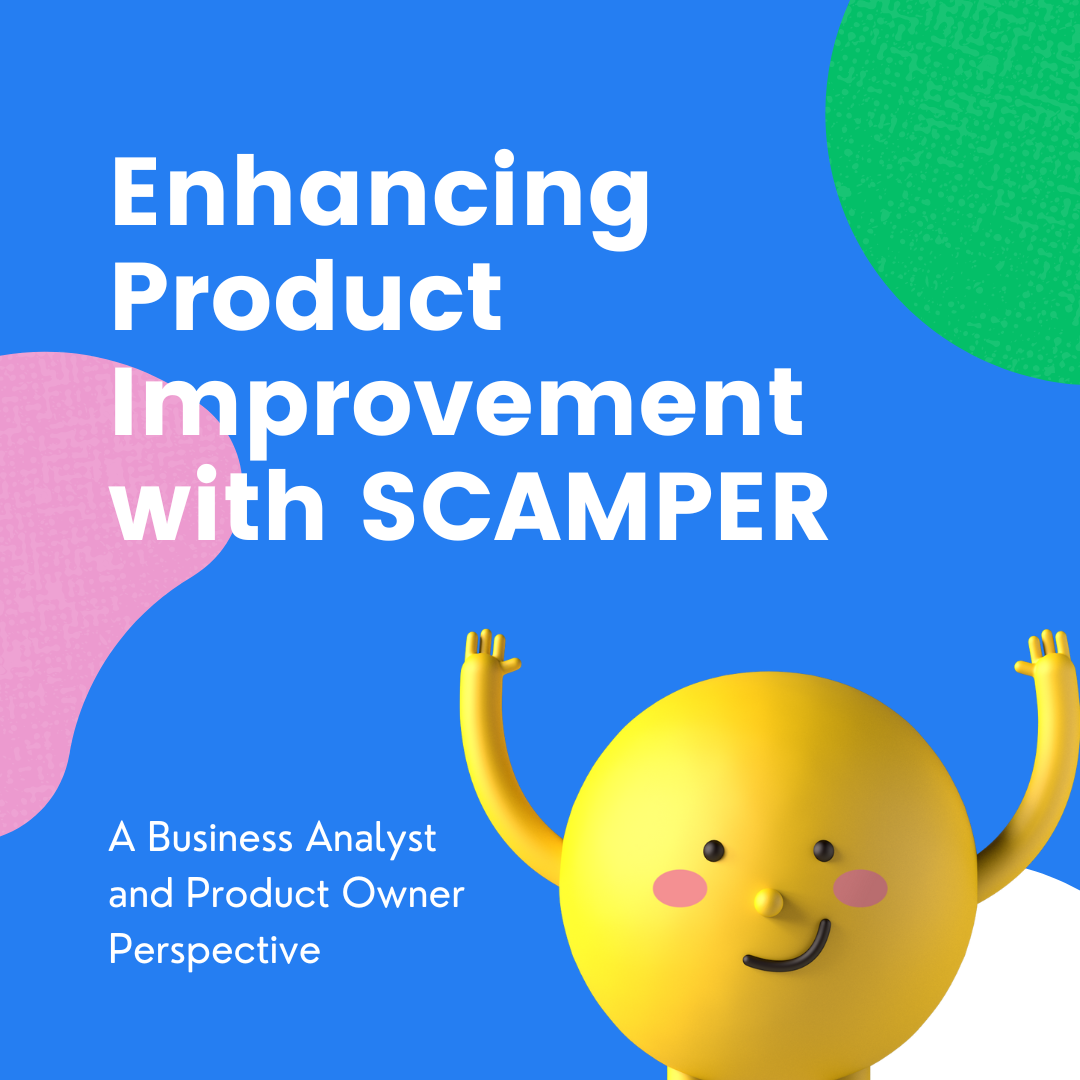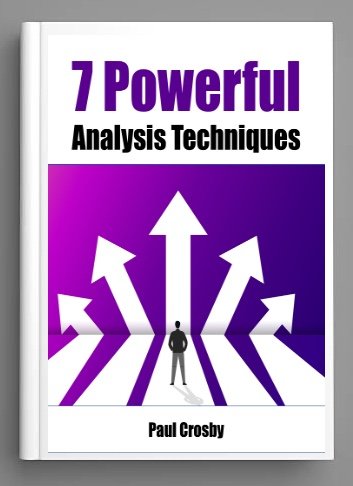Enhancing Product Improvement with SCAMPER: A Business Analyst's Guide
In the realm of product development, the ability to continuously innovate and improve is key to staying competitive and meeting evolving user needs. Business Analysts (BAs), armed with a plethora of business analysis techniques, play a pivotal role in driving product enhancements. One such technique that stands out for its versatility and effectiveness in fostering innovation is SCAMPER. This tool, which stands for Substitute, Combine, Adapt, Modify, Put to another use, Eliminate, and Rearrange, provides a structured approach to brainstorming and idea generation. Let's delve into how BAs can leverage SCAMPER for product improvement in both Agile and Waterfall methodologies, taking their business analysis to the next level.
Utilizing SCAMPER for Product Improvement
Substitute:BAs can explore opportunities to substitute elements of a product with more efficient, cost-effective, or higher-performing alternatives. This might involve using new materials, technologies, or processes that enhance the product's value proposition.
Combine:By combining features or functions, BAs can create more cohesive and versatile products. This approach encourages synergy between different product aspects, potentially leading to innovative features that set the product apart in the market.
Adapt:Adapting existing solutions to new contexts or problems is a hallmark of innovation. BAs can draw inspiration from other industries, products, or services to adapt features that address user needs in novel ways.
Modify:Modifying aspects of the product, whether it's its design, functionality, or user interface, can significantly enhance its appeal and usability. BAs should focus on modifications that directly contribute to improving user satisfaction and product performance.
Put to another use:Identifying new applications or markets for existing products or features can open up new revenue streams and expand the product's user base. BAs play a crucial role in identifying these opportunities and assessing their viability.
Eliminate:Streamlining the product by eliminating redundant, outdated, or low-value features can enhance its overall effectiveness and user experience. BAs must critically assess each product component's contribution to the overall value and user experience.
Rearrange:Reconfiguring the product's components or features can lead to improved efficiency, usability, or aesthetics. BAs should consider how rearranging elements can lead to a more intuitive and engaging user experience.
Advancing Agile Business Analysis with SCAMPER
To maximize the impact of SCAMPER in product improvement efforts, BAs should consider the following strategies within Agile and Waterfall frameworks:
1. Foster a Collaborative Environment:Encourage open, collaborative brainstorming sessions that involve cross-functional teams. Diverse perspectives can enrich the SCAMPER process and lead to more comprehensive product improvements.
2. Iterative Application in Agile:In Agile environments, apply SCAMPER iteratively, aligning with the continuous feedback and iterative development cycles. This ensures that product improvements are responsive to user feedback and market changes.
3. Comprehensive Analysis in Waterfall:For Waterfall projects, a thorough upfront application of SCAMPER can inform the planning and design phases, ensuring that product improvements are well-integrated and strategically planned before development begins.
4. Leverage Systems Analysis:Combine SCAMPER with detailed systems analysis to ensure that proposed improvements are technically feasible, cost-effective, and align with the overall system architecture and business objectives.
5. Embrace Continuous Learning:Stay abreast of emerging trends, technologies, and user preferences. Continuous learning enables BAs to bring fresh, informed perspectives to the SCAMPER process, driving more relevant and impactful product improvements.
The Powerful SCAMPER Business Analysis Technique
SCAMPER is a powerful tool in the business analyst's toolkit, offering a structured yet flexible approach to driving product improvements. By utilizing SCAMPER in conjunction with other business analysis techniques, BAs can foster innovation, enhance product value, and meet evolving user needs more effectively. Whether working within the iterative cycles of Agile development or the structured phases of Waterfall, the key to leveraging SCAMPER successfully lies in a collaborative approach, iterative application, and a commitment to continuous learning and adaptation. As BAs refine their use of SCAMPER and other techniques, they are well-positioned to take their business analysis practice to the next level, leading to better project outcomes and more successful products
Unlock your full potential as a Business Analyst with our game-changing online course! Tailored for the analytical minds eager to lead, innovate, and transform, this course is your gateway to mastering the most effective business analysis techniques. Whether you're looking to excel in Agile, shine in Waterfall, or innovate in uncharted territories, our expert-led curriculum is designed to elevate your skills, boost your career, and make you the go-to strategist in any room. Join us, and become the catalyst for change your organization didn't know it needed!
Ready to up your business analyst game? Let’s explore 7 powerful techniques that are shifting the business analysis landscape with expert insight from business analysis pros.
7 Powerful Analysis Techniques Book
Amazon Kindle $9.99
Uncommon Book of Analysis Techniques Book
PDF Download $75.00



